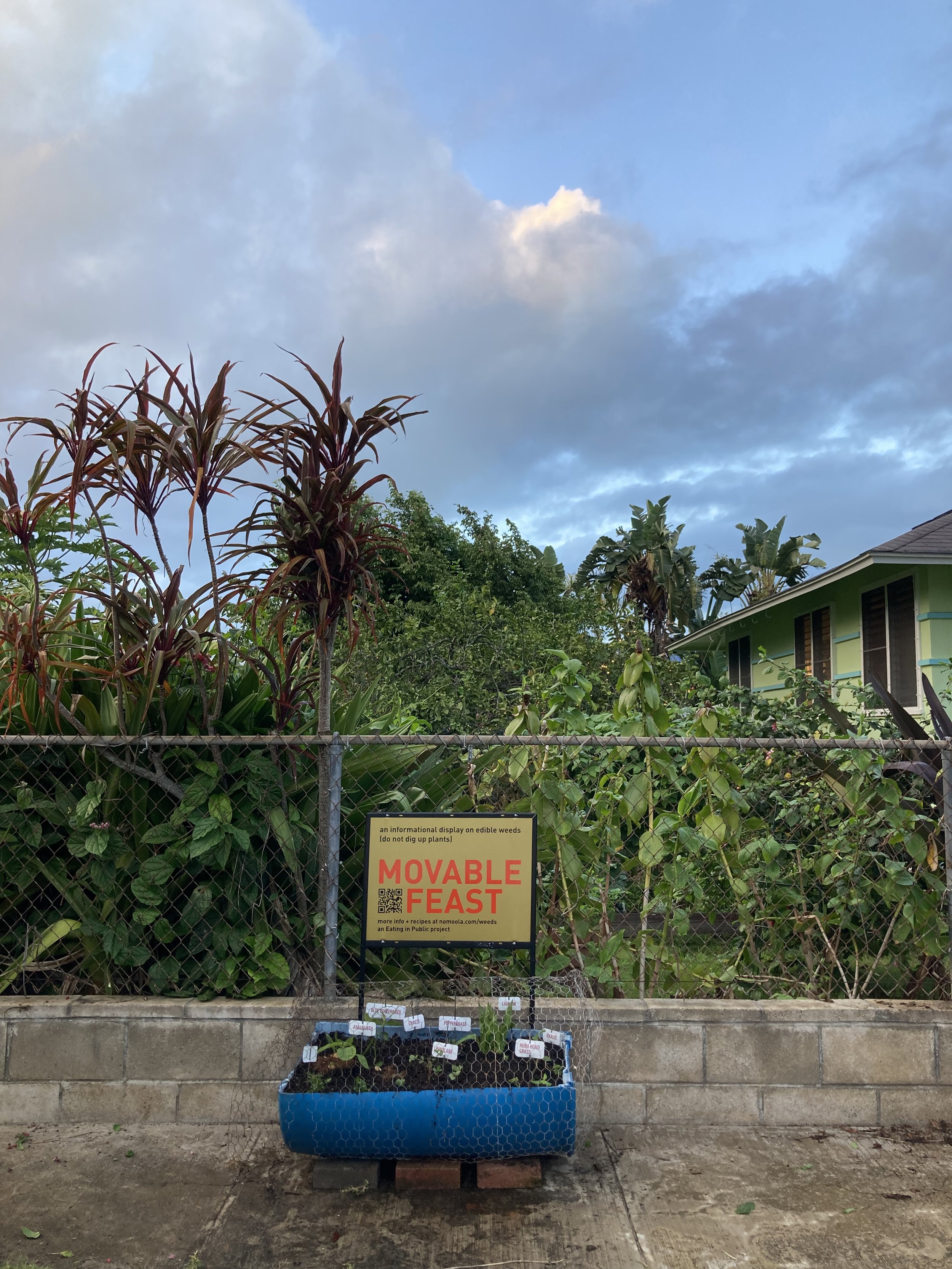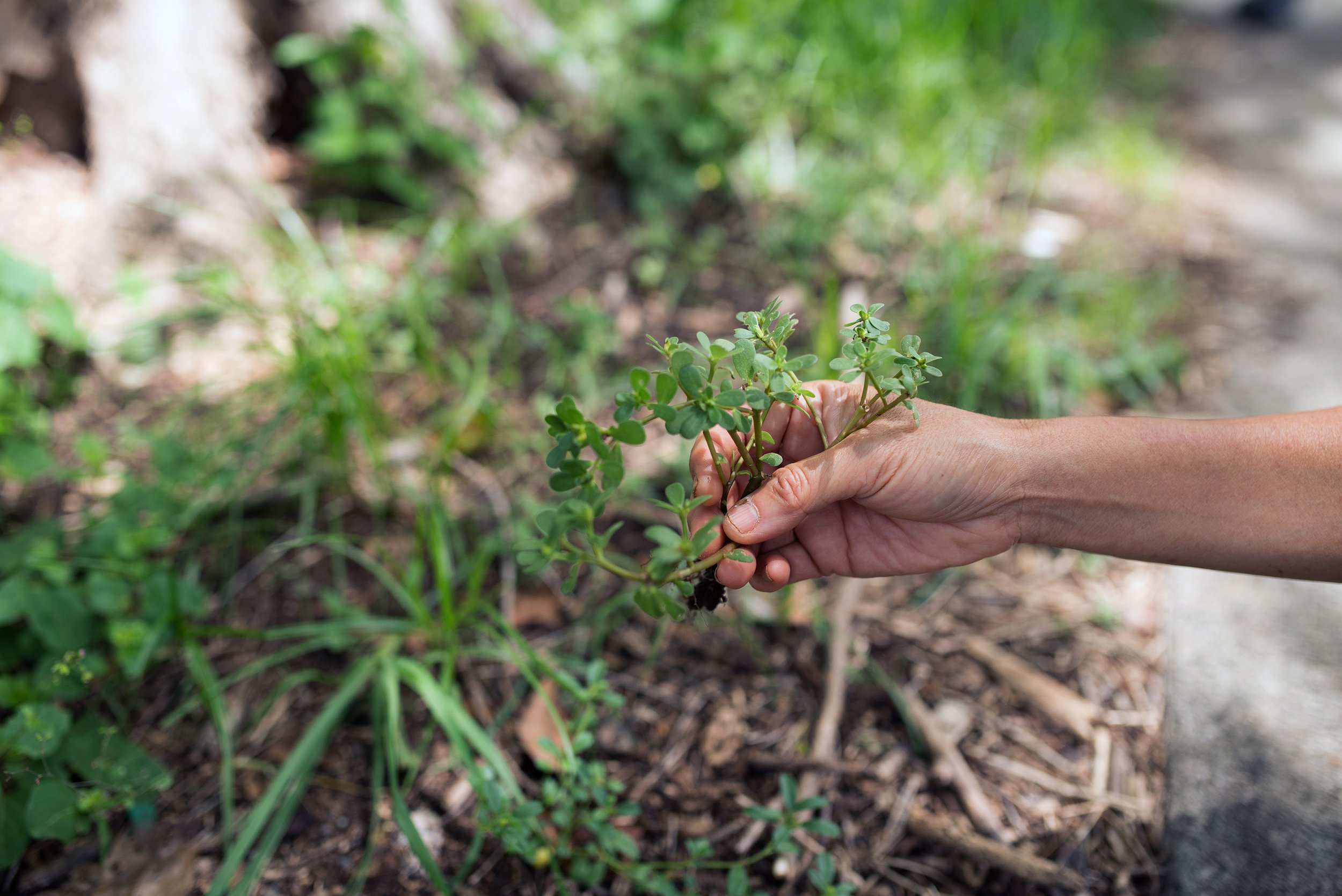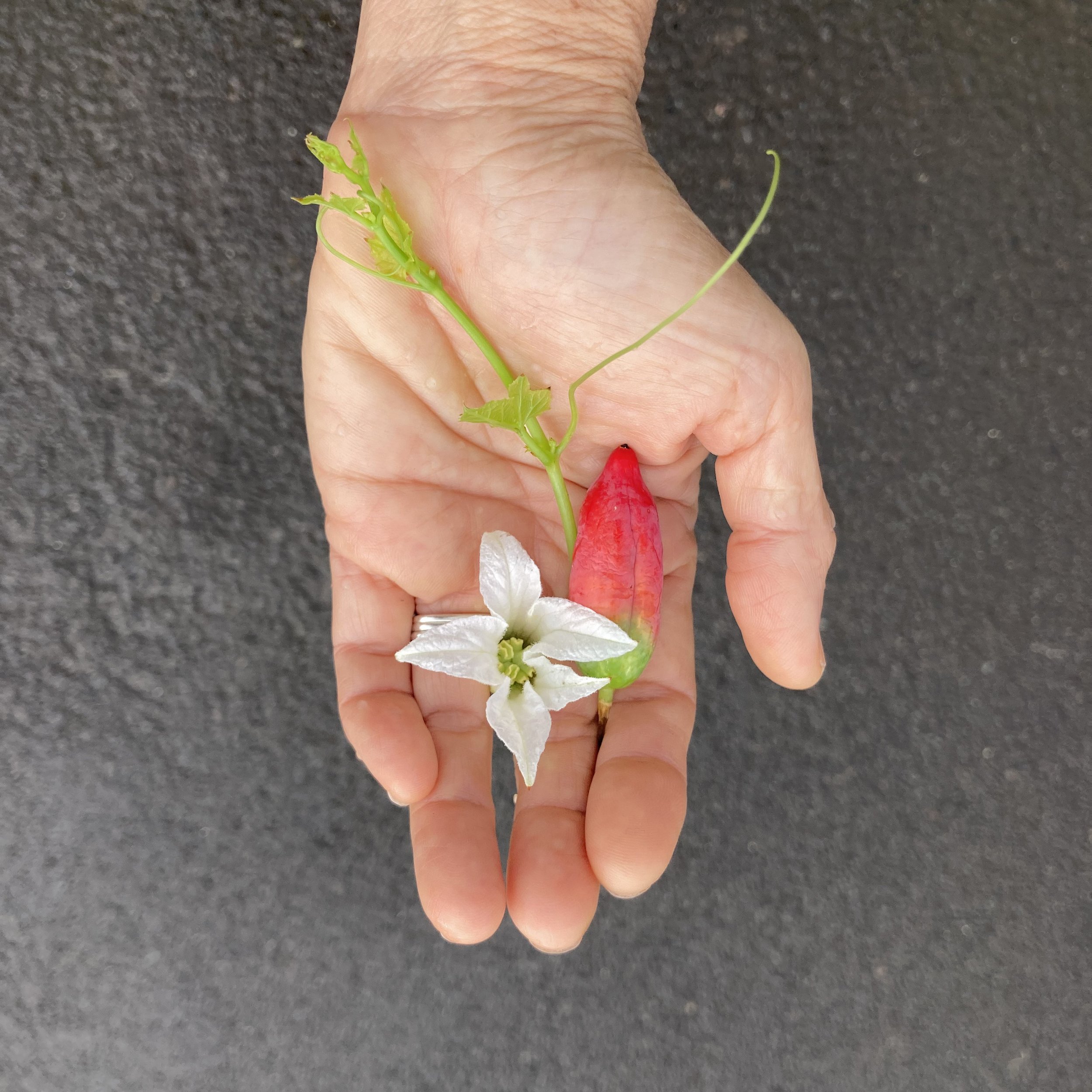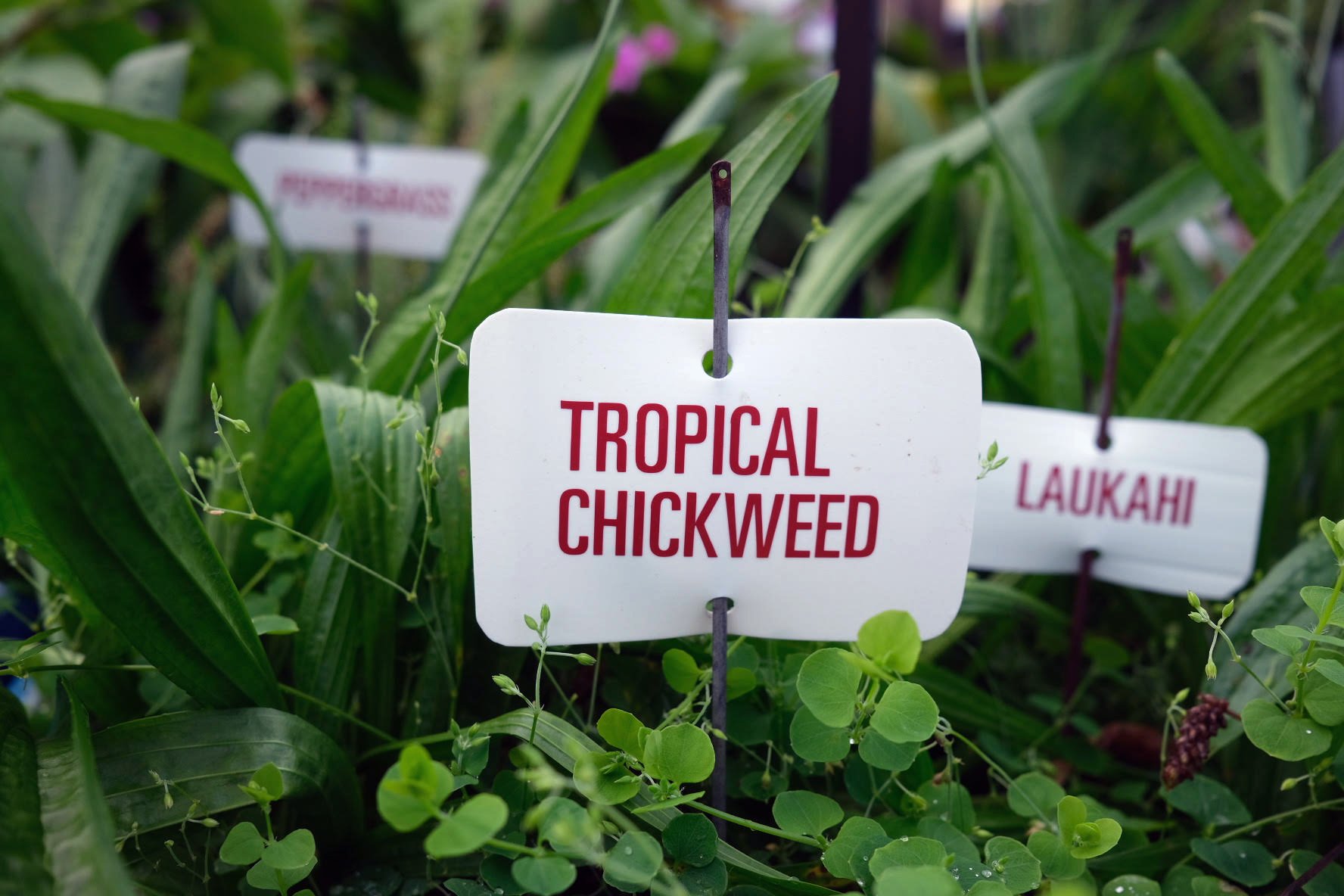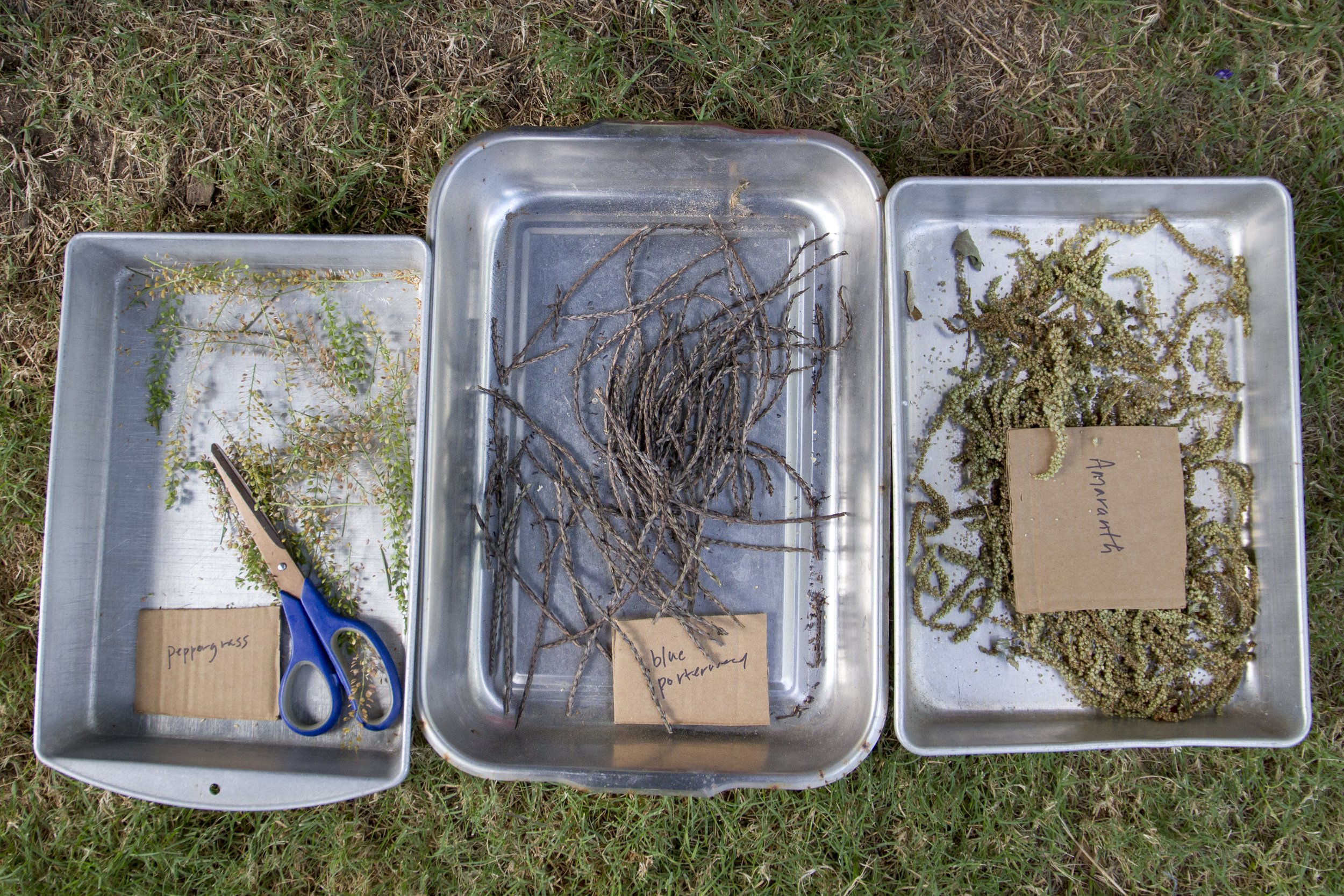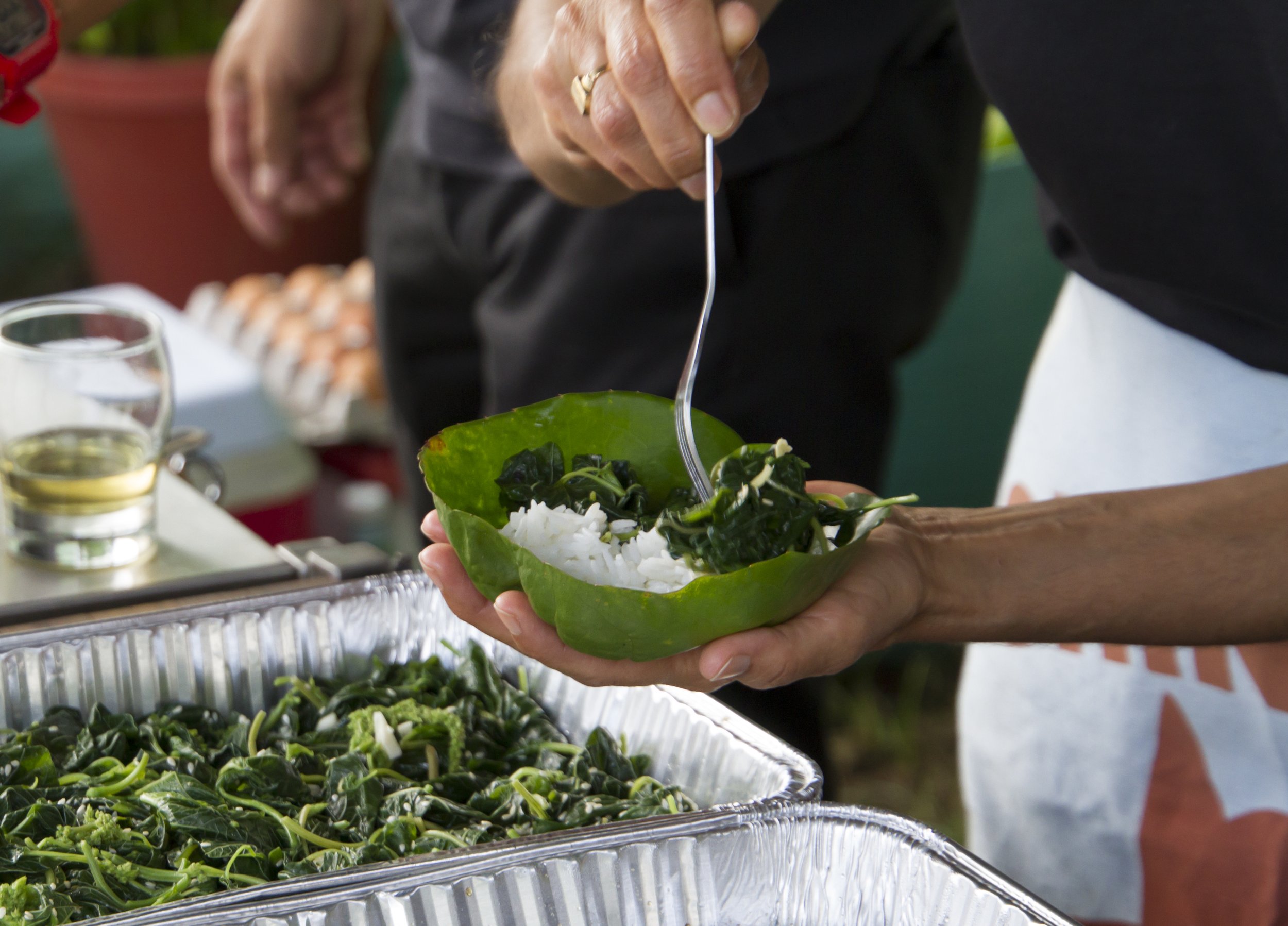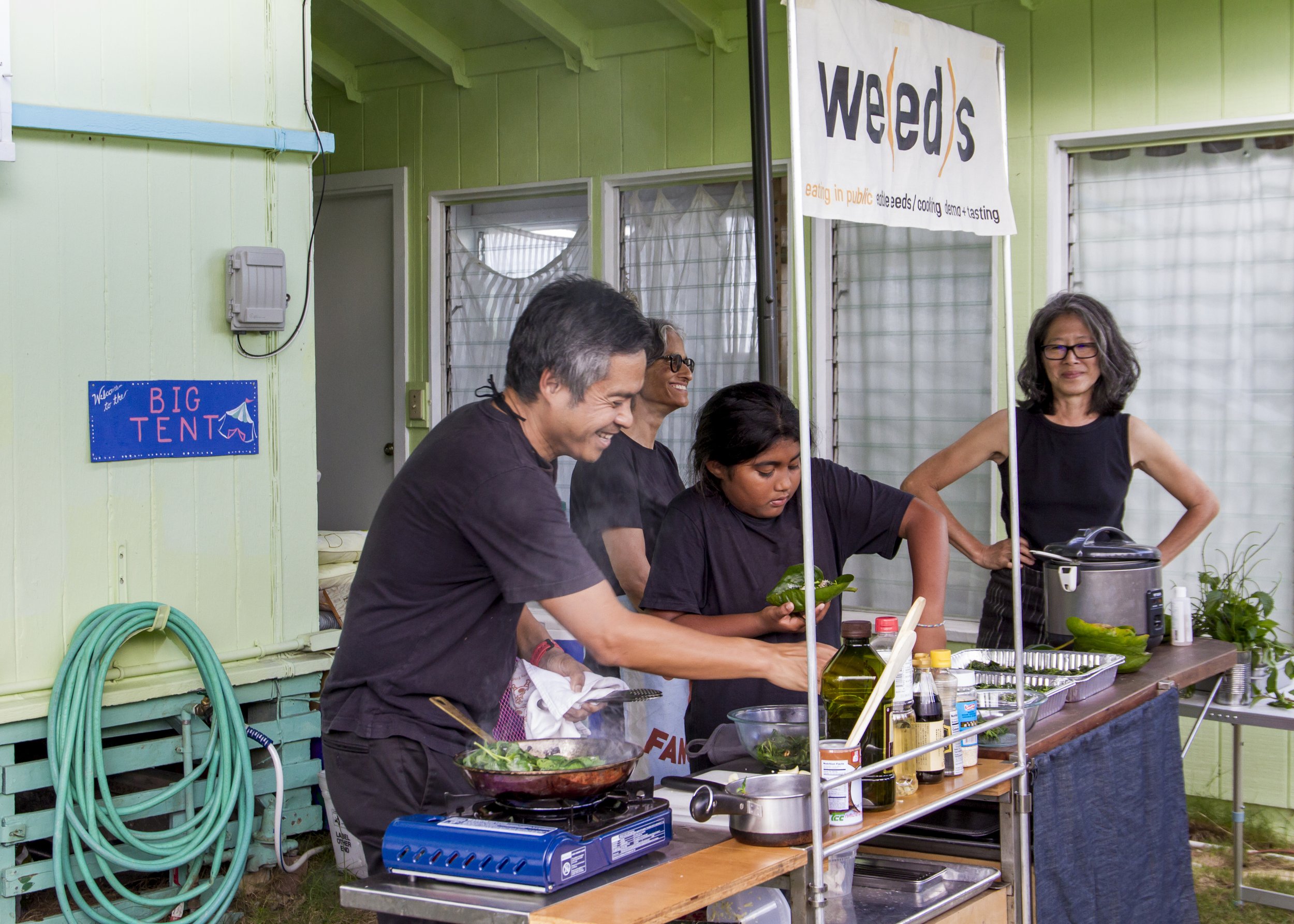hawai‘i triennial 2022
@ UNEXPECTED ENCOUNTERS
»» For locations, visit nomoola.com/movable-feast
»» Download an e-booklet on identifying weeds
EATING IN PUBLIC
Gaye Chan
b. 1957, Hong Kong; lives in Kāneʻohe and works on Oʻahu, hawai‘i
Nandita Sharma
b. 1964, Bhopal, India; lives in Kāneʻohe and works on Oʻahu, hawai‘i
Installation views: EATING IN PUBLIC, Moveable Feast, 2022, foraged plant installations and cooking/tasting demonstrations, various locations on Oʻahu, HT22. Courtesy of the artists. Photos: Shirley Lam.
EATING IN PUBLIC (EIP) was founded in 2003 in Kailua by Gaye Chan, artist, educator, and organizer, and Nandita Sharma, writer, educator, and scholar, to nudge a little space outside the state and capitalist systems. Following the path of pirates and nomads, hunters and gatherers, diggers and levelers, EIP forages at people’s homes, circulates instructional media, plants free food gardens on private and public land, promotes edible weeds as spectacular movable feasts, and sets up FREE STORES, FREE FRIDGES, SHARE SEEDS stations and other autonomous systems of exchange—sometimes by invitation, but more often without permission. Unlike Santa and the state, EIP gives equally to the naughty and the nice. They do not exploit anyone’s labor nor offer tax deductions. They are, in all the word’s various definitions, FREE.
For nearly two decades, EIP’s practices have been guided by three tenets:
TAKE = act without shame
LEAVE = share without condition
WHATEVAS = trust without apology
Initiating projects at over 1,000 sites of spontaneous and unauthorized sharing of goods and skills, EIP has reclaimed the commons, if only momentarily, on sidewalks, street corners, and social-media platforms, in print publications, backyards, abandoned lots, and, on rare
occasions, within institutional settings. EIP’s project for HT22 will center on edible weeds and take shape online, in print, and as a network of FREE STORES around the island of Oʻahu. Inspired by their annoyance of what they refer to as a ‘pernicious discourse of invasive species’, popular in Hawaiʻi and a growing number of places across the world, EIP’s weeds projects work on transforming understandings around ‘weeds’ from a threatening and unworthy form of life into food.
Speaking to the importance of weeds and working autonomously in a time of a global pandemic, economic collapse, and social unrest, Chan comments:
Knowledge about edible weeds is timely for the current moment. We are more aware of our vulnerabilities than ever before. We see in stark terms how precarious our lives are when we are entirely dependent on global trade and supply chains. As shortages demonstrate, capitalism pits us against each other and resources always go to the highest bidder. However this moment can also be an opening to recognize our connectivities.
Despite their focus on connectivities during crises, EIP also vehemently rejects the notion of ‘community’, stating that while it is often understood as a means of uniting a select group ‘through abstract ideas of nation, race, ethnicity, sex, gender, etcetera, it simultaneously works to divide.’ In a world where imaginary borders continue to harden, EIP believes that it is the stranger—those who lie outside of what we imagine to be the rightful occupant of a particular space—who holds the promise for our collective future.
In keeping with this approach, and in spite of being constantly gendered, racialized, and Otherized, Chan self-identifies only as queer (not LGBTQIA+) and as a Digger. The Diggers were seventeenth-century commoners in the place now known as England who fought the Great Enclosure; digging up hedges and filling in trenches used by government and landholders to enclose their commons, and planting food on land recently taken from them. Foregrounding engagement over categorization, and practice over identity, EIP is adamant that they are not original. In fact, they encourage participants to join in their activities or, better yet, take their ideas and run with them, ‘as far, smart, and fast as possible.’
Gaye Chan, 2019. Photo: Rae Huo


